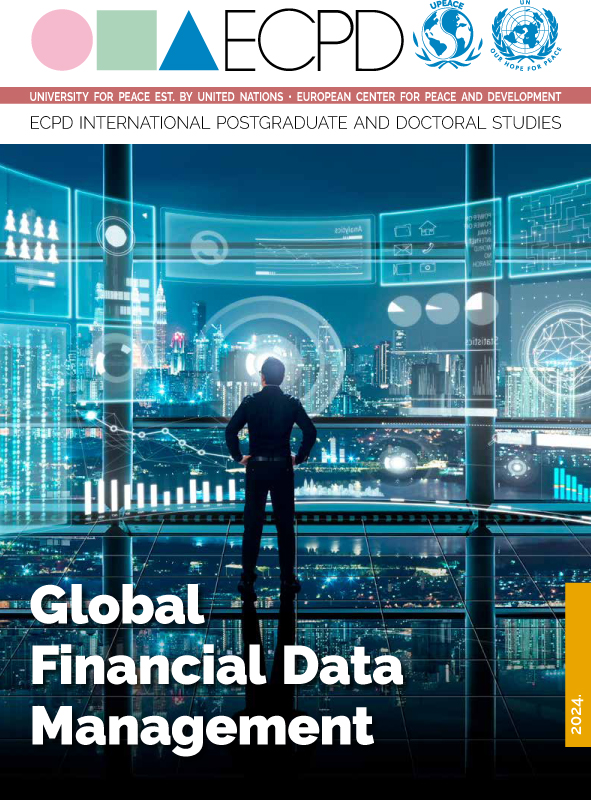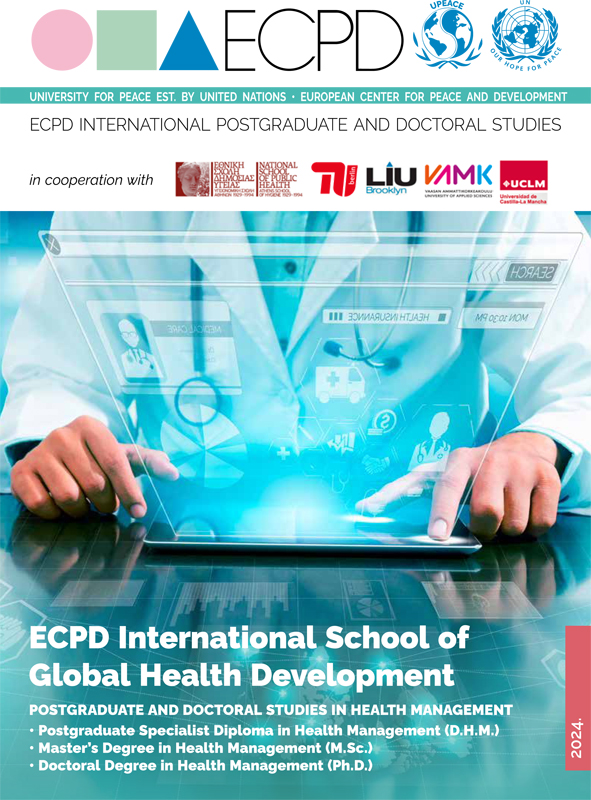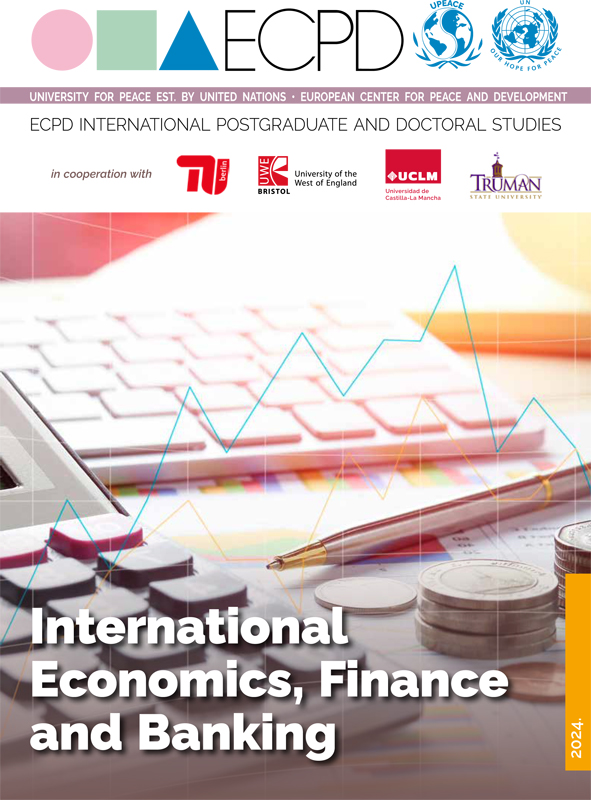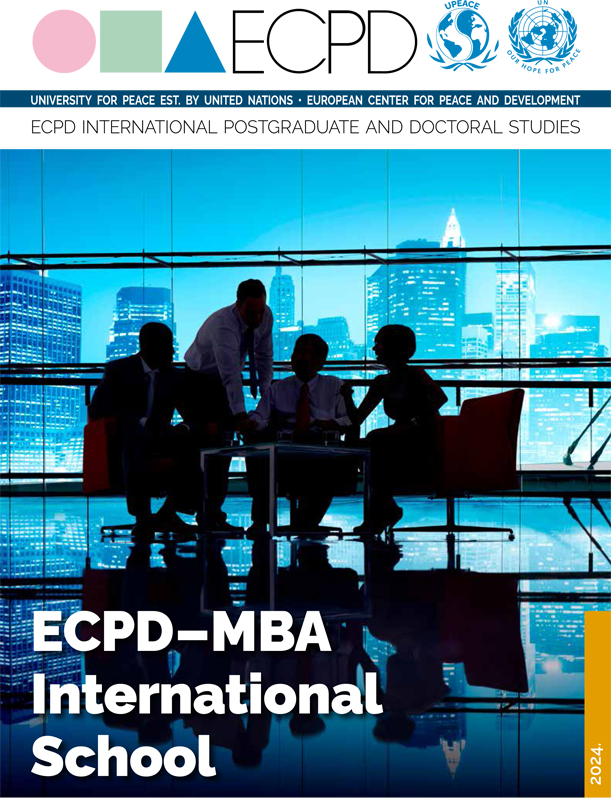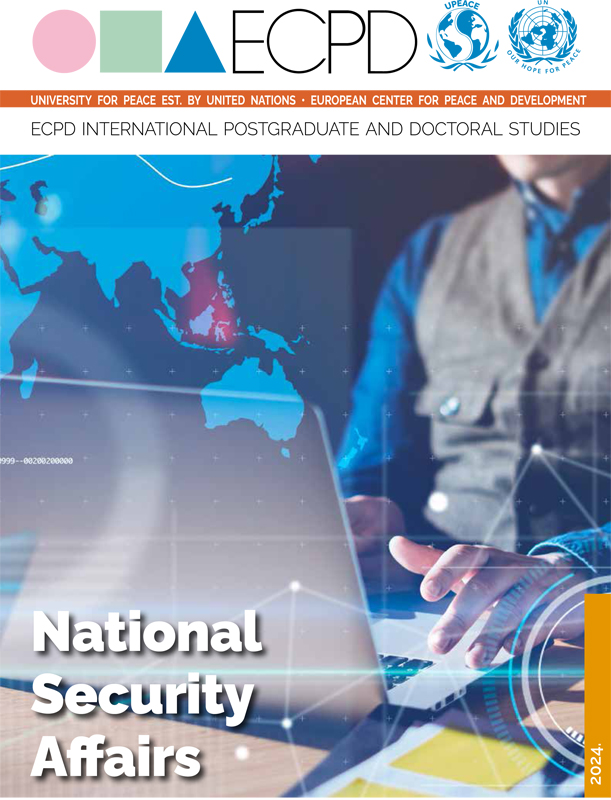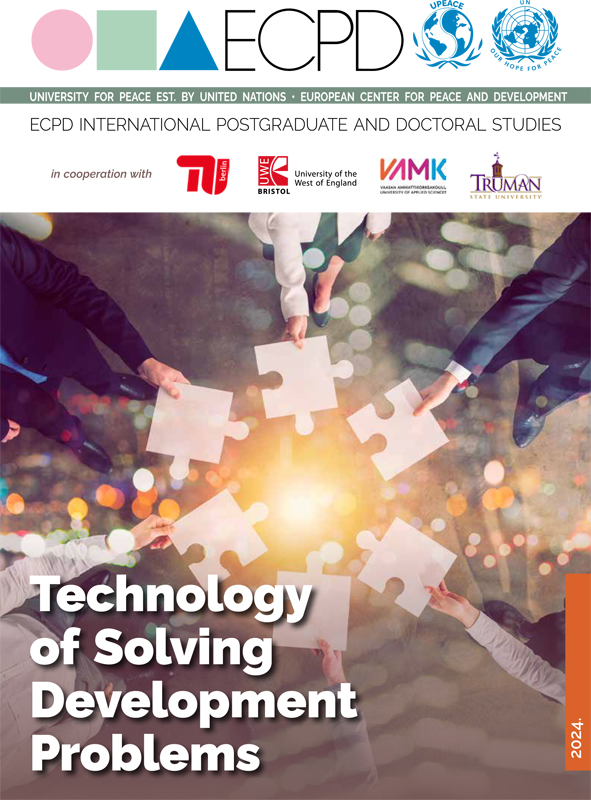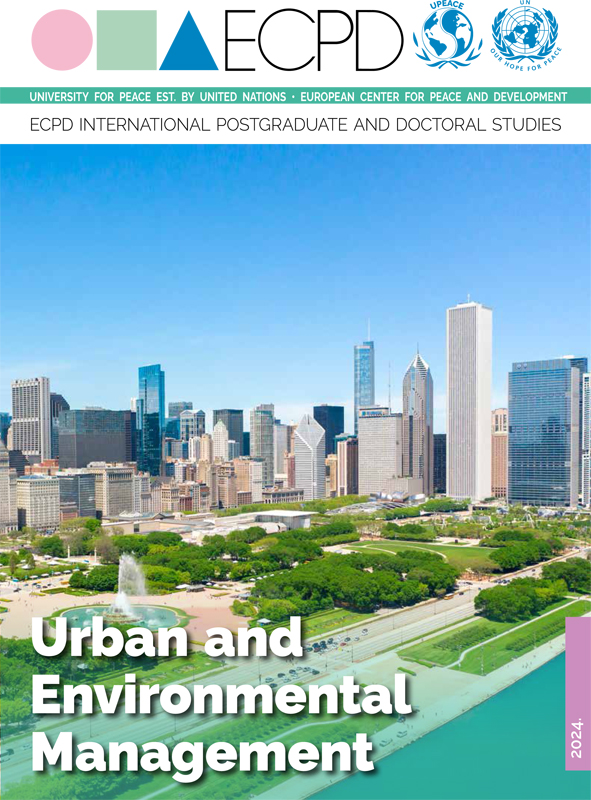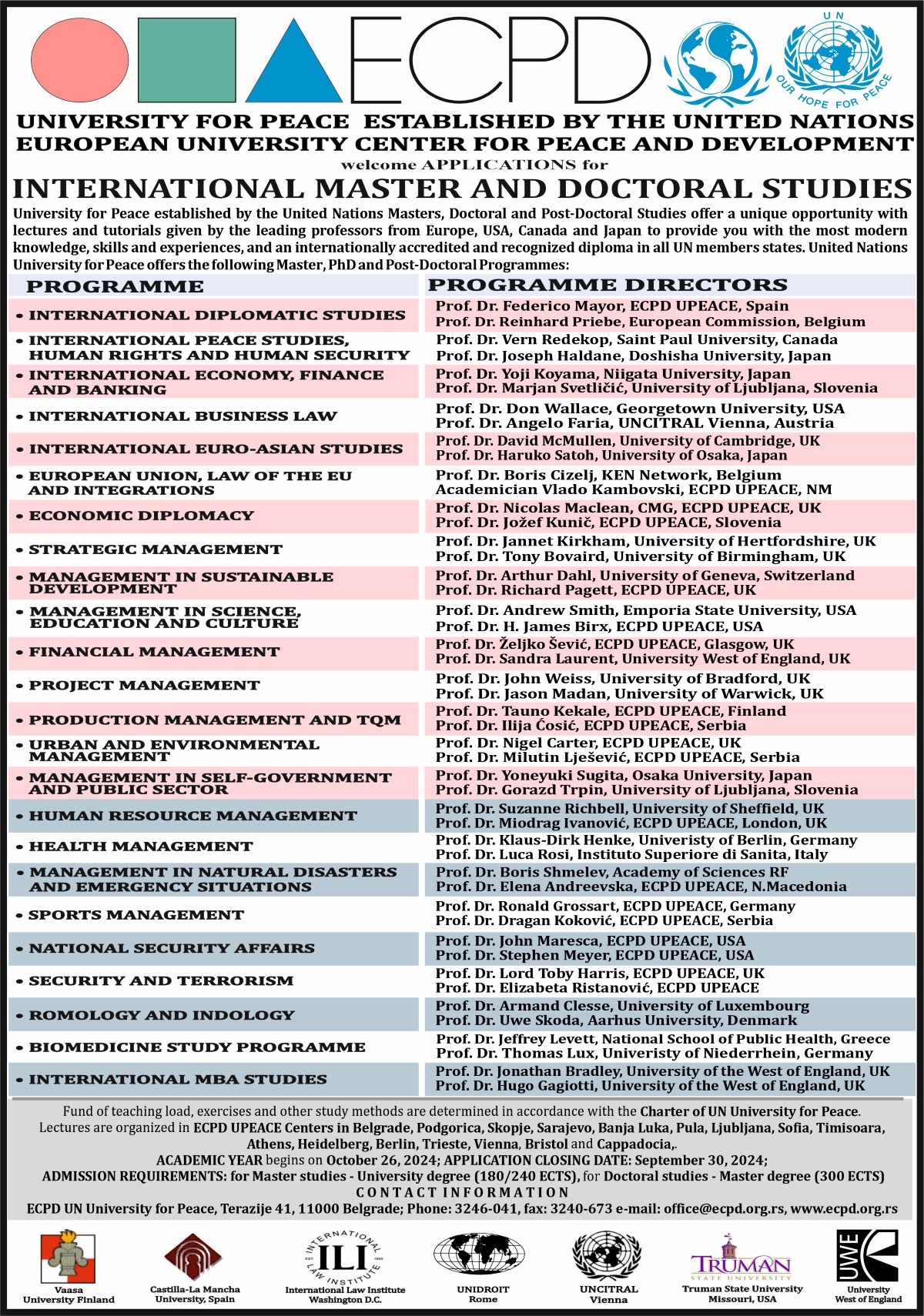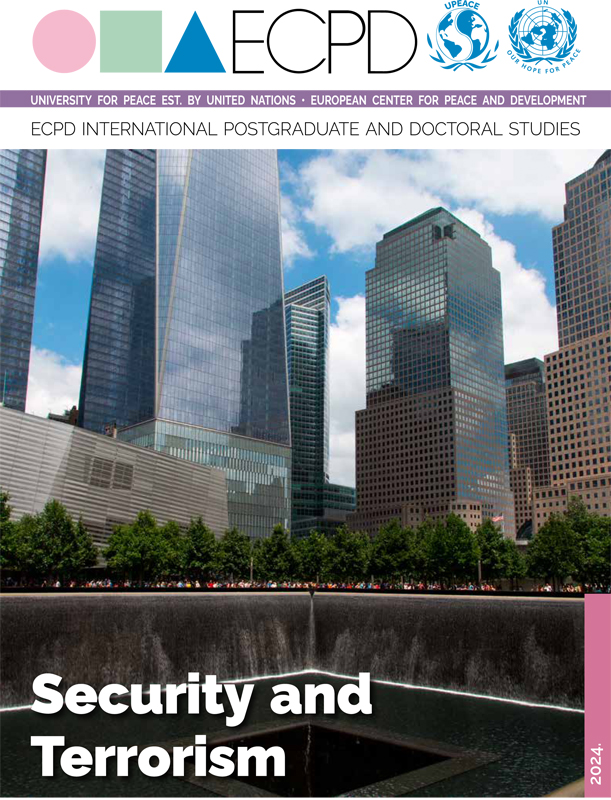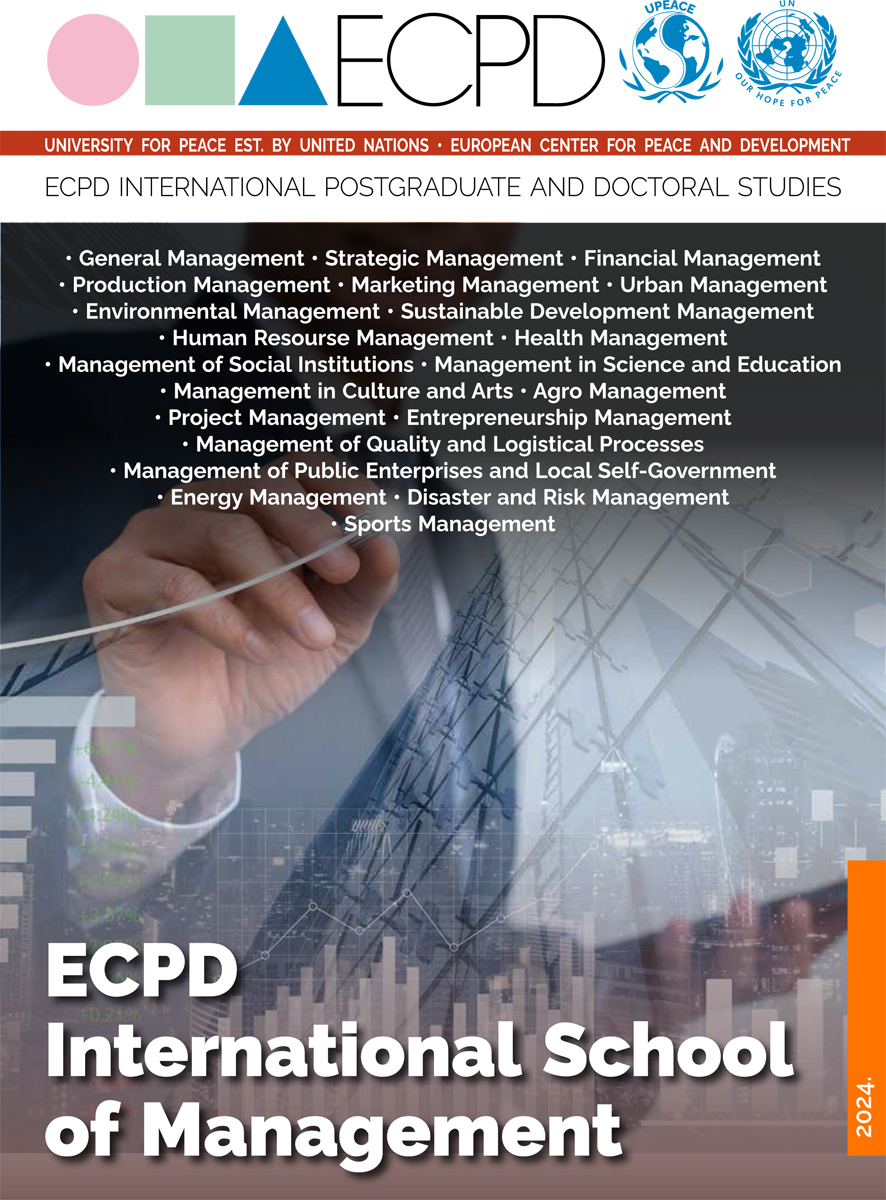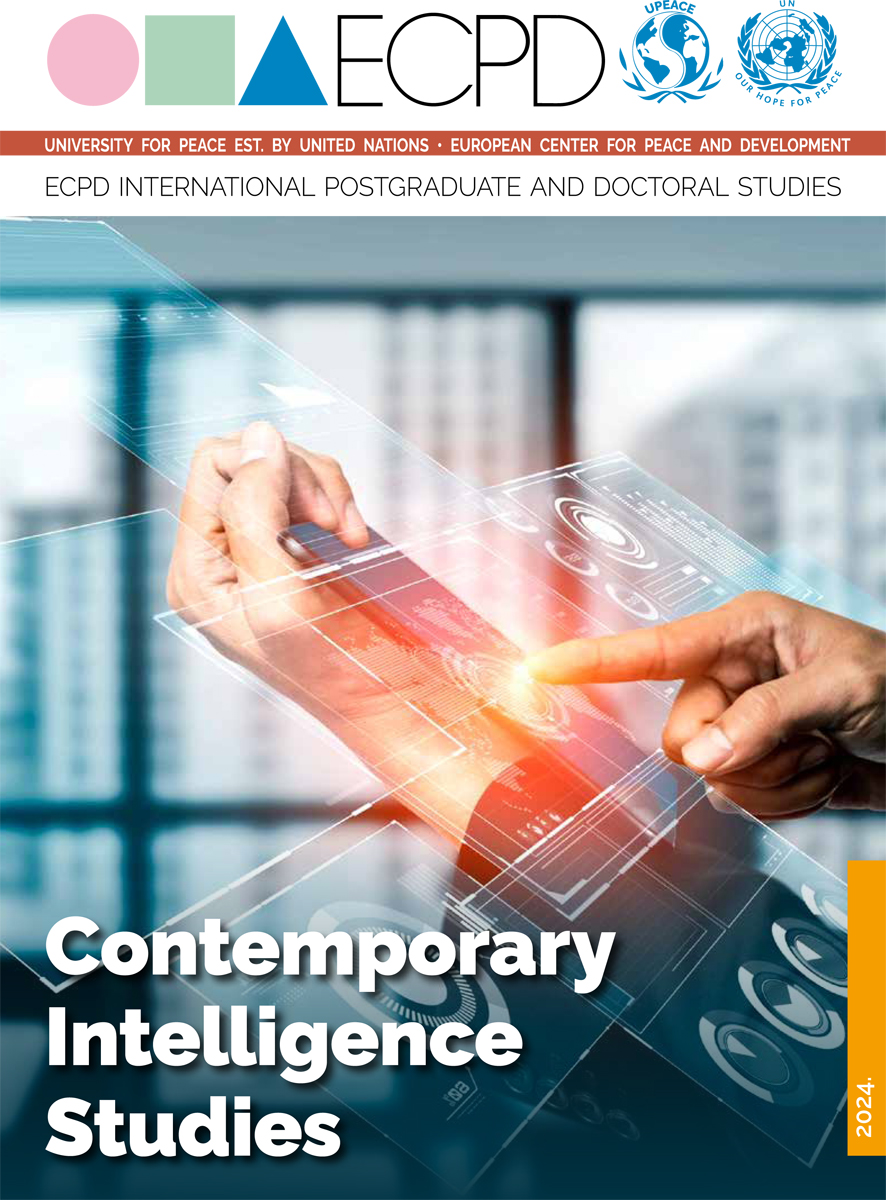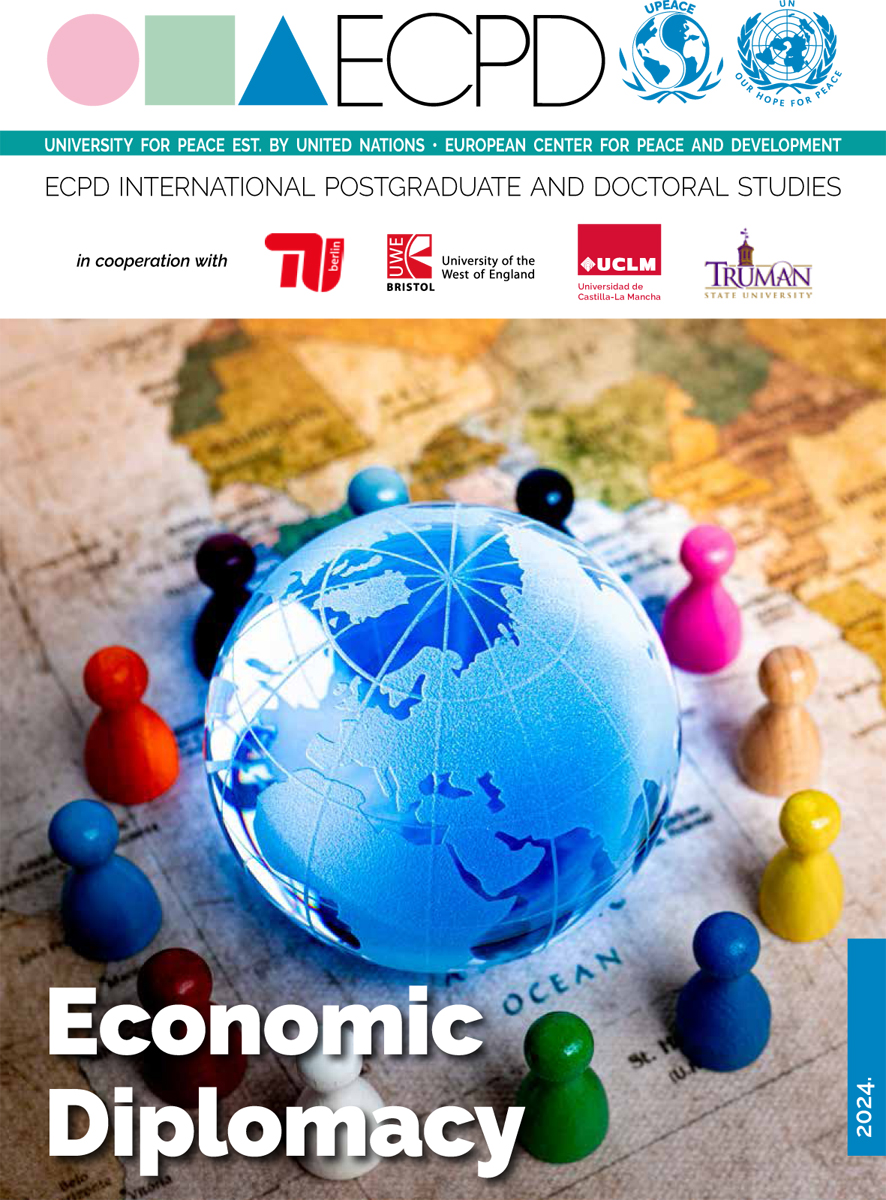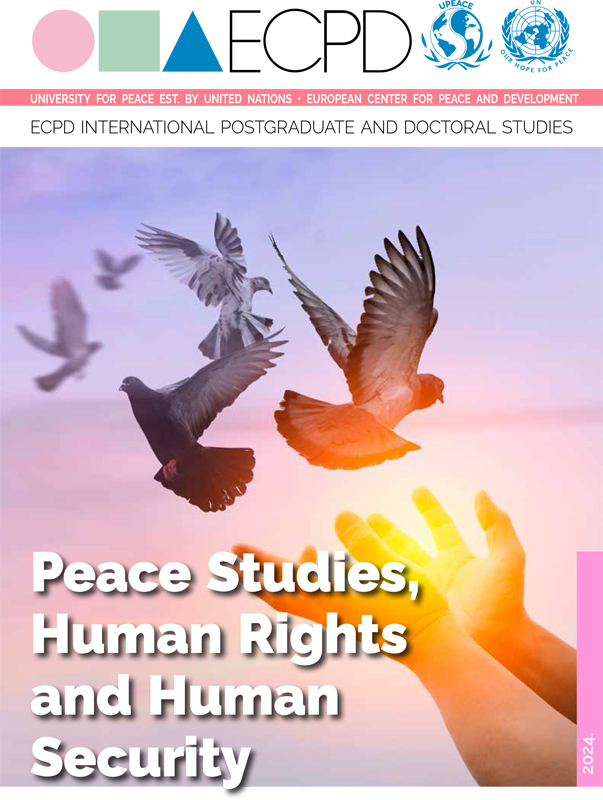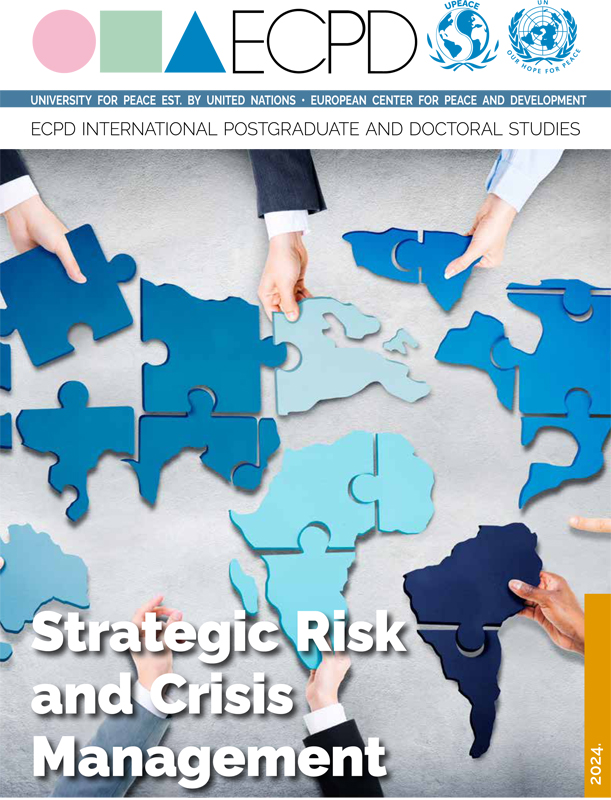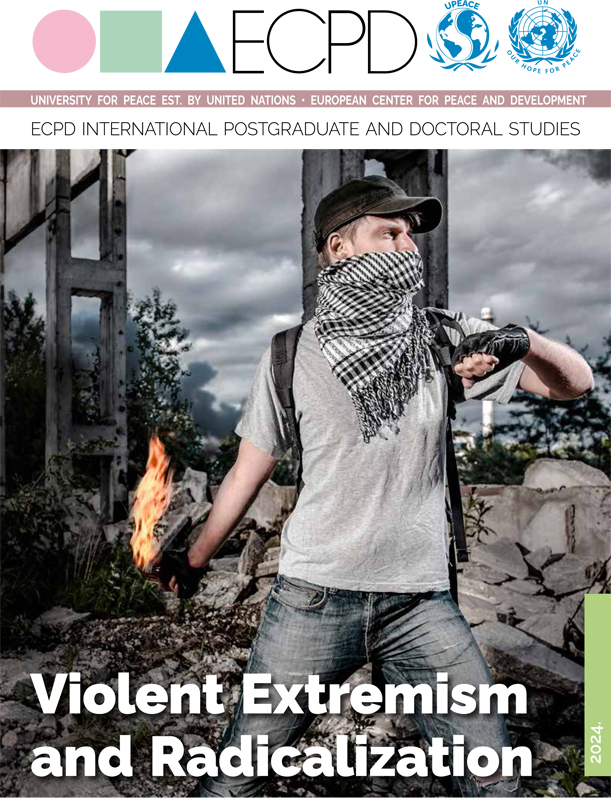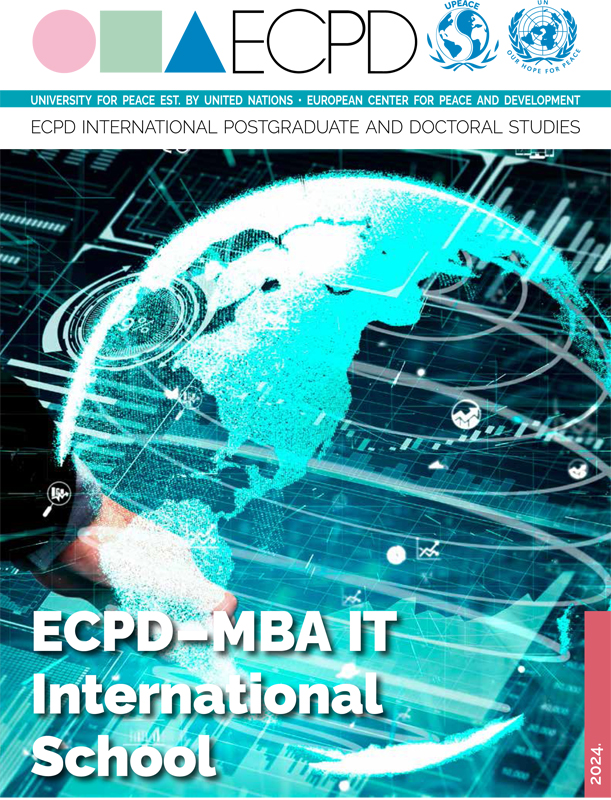The Balkans are a multinational, multi-confessional and multi-cultural region. Through out its history, those qualities were not used as advantages but, rather, as the cause of intolerance and conflicts among the Balkan peoples and the states.
As the least developed part of Europe, the Balkans were continually faced with numerous problems that stalled its development and threatened it with new challenges. Prevention of the unfavorable trend of events and out breaking new violence and armed conflicts in the Balkans is an imperative of time.
There are various ways and means, which could be used in prevention of perils and building paths and conditions for peace and stability in the Balkans. The late Albert Einstein said: "Peace cannot be achieved by force, it can be achieved by understanding". Peace, rightly, can be achieved by understanding, but how can understanding be achieved?
Answering to this crucial question it could be said that education designed primarily for promoting peace and tolerance can greatly contribute to the better understanding among the Balkan peoples and states.
The Programme of the ECPD education for peace and tolerance is conceived in such a way as to promote the development of the culture of peace, ethnic and religious tolerances, respect of human rights and civic liberties, and the like.
The main subjects included in the Teaching Plan and Programme are:
· Philosophy of peace (as opposite to the Philosophy of war);
· The world globalization and regional integration (impact of these processes upon economic and social life);
· War and violence (economic and social consequences of armed conflict and the ways and means of preventing them);
· Ethnic and religious tolerance (ways of building them);
· Pedagogy, peace and tolerance (role of pedagogy in building better understanding);
· Peace and Development (based on the principle that without peace can not be a sustainable development and without development there is impossible to have a durable peace);
· Human rights and civic liberties (significance of respecting these rules for building of mutual understanding.
· Communication and peace (promotion of peace and tolerance through mass-media)
Forms and Level of Training
The Programme of the Education for peace and tolerance offered by the European Center for Peace and Development incorporates various forms and levels of education, including:
· Tailor made seminars (lasting one to seven days);
· Specialist courses;
· Summer schools (one, two, three or four weeks);
· Specialist postgraduate studies (one year, two semesters);
· Postgraduate studies at master's level.
The European Center for Peace and Development offers a rare opportunity to the postgraduates to choose their master's or Ph.D. thesis on peace making, conflict prevention and the like.



















